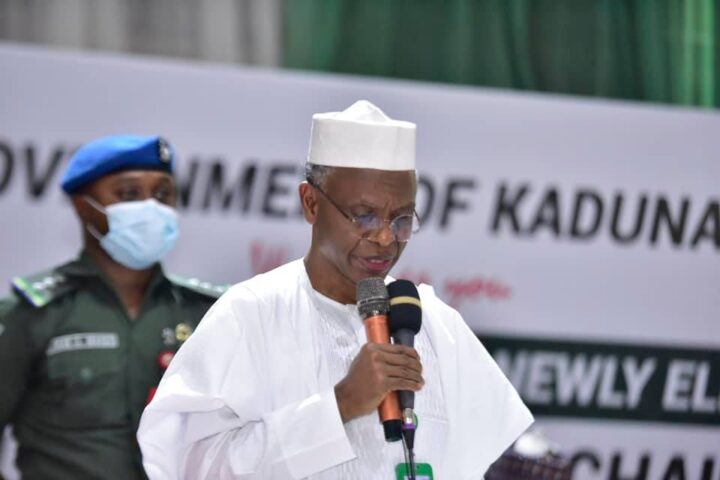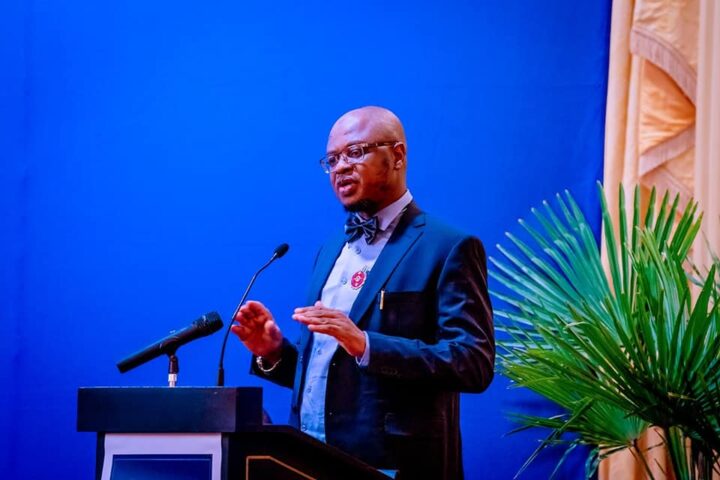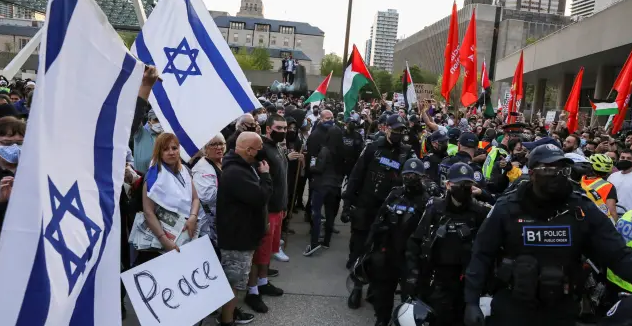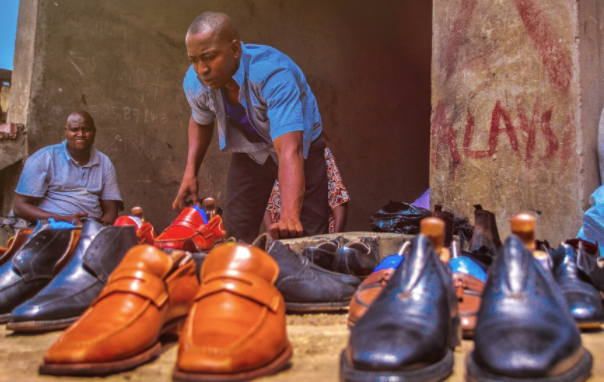BY GODWIN NJOKU
The Kaduna state government, under the leadership of Nasir El-Rufai, has worked harder to curb insecurity than any other state of the federation. The governor himself has shown more commitment than any of his peers in the search for better ways to curtail the menace of terrorism and sundry criminalities across the nooks and crannies of Nigeria.
Constitutionally, security matters rest exclusively on the shoulders of the federal government. So, no matter how committed or eager a governor might be to secure people within his domain, he has to rely on actors beyond his official control and influence. It’s a debilitating handicap, one that must be remedied if we truly want to improve the way we secure lives and estates in the country.
By creating a full-fledged cabinet ministry for security and home affairs, El-Rufai has managed to achieve a measure of coordination in his government’s interface with federal security forces deployed to the state. It’s true that terrorism has not abated in the state, but it could have been worse if the state had done nothing to help manage the situation.
Advertisement
A couple of weeks ago, the state government presented the second annual security report, providing factual accounts, and showing zonal spread of terrorist activities, communal clashes and other crimes across the state, in 2021.
Dispassionate observers would readily see the usefulness of publishing accurate reports of security breaches that involved loss of lives and property. In the specific case of Kaduna, factual reporting has showed that the ugly and regrettable incidents of terrorism in the state had not been targeted at any one group, or restricted to any one zone. It’s clear that the problem affects everyone, and that the best way to curb violence and bloodbath is for all groups to close ranks, pursue peace and good neighbourliness, and present a common front against criminals.
Specifically, the facts and figures, as detailed in the 2022 annual report, showed there had been more killings, kidnappings and other violent crimes in Kaduna central than in the southern senatorial district. This is quite significant, especially to those of us in the south of the Niger who have been made to think that terrorism in Kaduna is targeted at ethnic minorities. Every single incident of communal unrest and killings in the southern district is presented to us through distorted lens, and made to look as one more instance of ethnic cleansing.
Advertisement
While communal unrest and bloodshed anywhere in the country is disgusting and must be strongly condemned, it’s wrong to suggest that an elected government could ever see political or social gain in openly organising, or tacitly condoning, the shedding of the blood and destruction of property of the very people he swore to God to protect.
Incidentally, when terrorists ply their bloody trade in other states like Niger, Katsina, or Zamfara, nobody brings ethnic cleansing or religious persecution into the narrative. Nor do we generally blame the governors of other states for the dastardly acts of terror groups and misguided criminals in their respective states.
As noted earlier in the opening paragraph of this piece, the government of Kaduna state government, under Nasir El-Rufai, has showed appreciable zeal and strong commitment toward the development of a standard operating procedure (SOP), to tackle terrorism across the country. But nobody seems to be listening or paying heed to El- Rufai’s persistent call for a change of tactics. The mainstream media ought to pick up and amplify the various items in El-Rufai’s SOP.
One vital aspect of the SOP, as proposed by the governor, is that the federal government should recruit 1,000 youths from each of the 774 local government areas, a massive addition of 774,000 new intakes into the armed forces. The point is, to defeat terrorists, you’ve got to overwhelm them, either with more superior technology, or with sheer number of combatants. Beyond overwhelming the enemy with more boots on the ground, the recruitment of 1,000 youths per local government would make a positive impact in the employment market and help reduce poverty in a sustainable way.
Advertisement
On the current scale, the nation seems to be losing to the enemy in the number game. When the gallant troops overrun terrorist camps in one state, the criminals simply shift base to another state, knowing as they do, that the military lacks the resources to launch simultaneous offensives multiple fronts, or to hold on to captured territories. A massive recruitment into the military would give much advantage to the gallant troops who stake their lives to protect others.
El-Rufai has also been in the forefront of the campaign for the creation of state police. You really wonder why this has proved to be a hard nut to crack in Nigeria. We mockingly refer to state governors as chief security officers of their states. How do we expect them to secure their domains, when they’ve got absolutely no control over any security personnel? Yes, they can support the security forces with funds, logistics and accommodation. But they can’t even determine how their resources would be used to serve the security needs of their people.
If all the 36 state governors can join hands and push as hard as Nasir El-Rufai, there’ll no force in Abuja that can prevent the creation of a legal framework for the operation of state, and even, local government police units.
Some would argue that the items in El-Rufai’s standard operating procedure for enhancement of national security would be too costly for the government to bear. For instance, when he suggested that the green belts shielding the terrorists should be carpet-bombed, some recoiled in disgust, retorting that it would be too costly to restore the forest and prevent ecological disaster.
Advertisement
That logic of going easy with terror groups to save cost, would lose force when you remember that the protection of lives and property is, indeed, the most compelling reason why governments exist. There’s nothing else the government does that matters when law abiding citizens are killed in droves, and their possessions destroyed by hoodlums on daily basis. If a nation is thus overwhelmed by insecurity, the society quickly degenerates to what Thomas Hobbes called the state the nature.
According Hobbes, the 17th century English philosopher and author of The Leviathan, when there’s no authority to set and enforce the criteria for right and wrong, everyone would take for themselves whatsoever they want, and human existence would become “solitary, poor, nasty, brutish and short”.
Advertisement
While Nigeria has yet to degenerate to Hobbe’s state of nature, long-drawn insurgency in the northeast, and widespread terror attacks cum criminality in the northwest, have tended to make human existence very precarious in the affected communities. Their daily lives can only be described as nothing but nasty, brutish and short. It would be unfortunate if the situation is allowed to continue to fester, or to metastasize like malignant cancer, and engulf more parts of the country.
Nasir El-Rufai has demonstrated strategic leadership qualities in handling security matters, within the well known constitutional limitations. According to Pearl Zhu, a notable Chinese corporate executive and author, strategic political leaders strive to show insight by looking deeper and wider into the challenges of the time, and coming up with solutions that push beyond conventional positions. It’s high time the nation pays heed to the voice of reason. Get more boots on the ground, create the framework for the existence of state and local government police units and go harder with terrorists, as contained in El-Rufai’s standard operating procedure.
Advertisement
Godwin Njoku is the former associate editor, New Nigerian Newspaper, Kaduna
Advertisement
Views expressed by contributors are strictly personal and not of TheCable.
Add a comment






